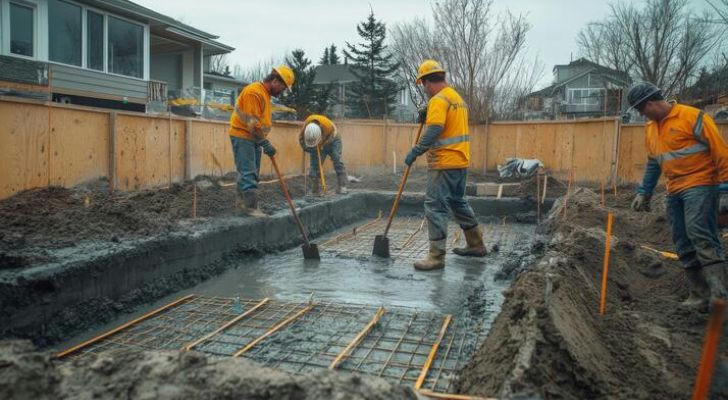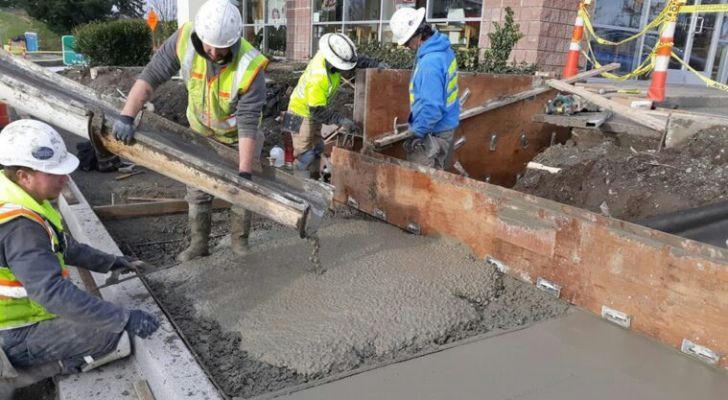Why is now the best time to become a concrete worker?
Concrete workers play a crucial role in the construction industry, responsible for the installation, repair, and maintenance of concrete structures. As the demand for infrastructure development continues to grow in the United States, the need for skilled concrete workers is on the rise. According to the Associated Builders and Contractors (ABC), the industry will need to attract approximately 501,000 additional workers in 2025 to meet rising construction demands. Ready to Grab Your Hard Hat? There’s never been a better time to join this essential field.

Current Job Market Snapshot: Concrete Workers in High Demand!
Boom Time for Builders!
America’s construction sector is on fire! From skyscrapers in cities to new homes in suburbs, projects are popping up everywhere. Concrete workers are the backbone of this growth—think roads, bridges, foundations, and more. Why? Urban expansion, aging infrastructure upgrades, and a housing boom are driving the need for skilled hands.
Jobs Galore – Faster Than Average!
The U.S. Bureau of Labor Statistics (BLS) predicts an 8% surge in concrete worker jobs from 2020 to 2030—outpacing most other careers. Whether you’re starting fresh or switching careers, opportunities are wide open!
Hot Recruitment!
Texas, California, and Florida are leading the charge with massive construction projects. But don’t sleep on other regions—new infrastructure bills mean even smaller towns need concrete pros.
Why Choose to Work in Concrete?
High Demand, Guaranteed Employment
The $1.2 trillion bipartisan infrastructure bill is upgrading roads, bridges, airports, and other public facilities, and the demand for residential and commercial real estate development in various states continues to surge. Concrete workers will be one of the most in-demand skilled trades in the next decade, with unparalleled career stability and long-term employment prospects.
Competitive Compensation and a Full Range of Benefits
According to the Bureau of Labor Statistics, the average hourly wage for these professionals is about $27.60, which is equivalent to an annual salary of about $57,410. Overtime and seasonal bonuses often increase income. Many employers offer:
- Health insurance, retirement plans (401k) and paid time off.
- Apprenticeship programs and certification tuition reimbursement.
- Get union benefits (such as higher wages, safety training) through organizations such as the Labor International Union of North America (LIUNA).

Career Paths and Technology Empowerment
From Laborer to Leader: Clear Career Path
- Entry-Level Worker
- Skilled Finisher/Operator
- Foreman/Supervisor
- Project Manager
Certification = Higher Pay
Employers often sponsor the following training:
- OSHA 30-Hour Safety Certification
- ACI Concrete Field Technician
- LEED Green Associate
Hiring Information
Salary: $200.00 - $350.00 per day
Other benefits: 401(k), dental insurance, health insurance, paid time off, vision insurance
Job Type: Contract
Main Responsibilities:
- Assist in the installation of concrete structures, including sidewalks, driveways, and foundations.
- Perform concrete forming tasks to prepare for pouring and finishing.
- Engage in heavy lifting and moving materials on construction sites.
- Read and interpret blueprints to ensure accurate project execution.
- Collaborate with team members to complete projects efficiently and safely.
How to Apply?
- Applying online is easy—just search for concrete workers on Indeed. If you need more job opportunities, you can also use search engines to get relevant job postings.
Frequently Asked Questions (FAQs)
What training is required to become a concrete worker?
Many employers offer apprenticeship programs that combine on-the-job training with classroom instruction.
What is the average salary for concrete workers?
The average hourly wage is approximately $27.60, translating to an annual salary of about $57,410, with potential for overtime and bonuses.
What are the working hours usually like?
Working hours may vary depending on the project, but are usually full-time.
Real Case: Jack
Background: Jack is a concrete worker from Florida who has been in the industry for less than two years. He decided to join a local concrete company as an apprentice after graduating from high school.
Career Development: Jack's work mainly consists of assisting in the installation of concrete sidewalks and driveways. By working with experienced workers, Jack quickly mastered the necessary skills and gained recognition from the company in a short period of time.
Final: As his skills improved, his hourly wage increased to $22 within a year. His company also provided him with health insurance and a 401(k) retirement plan, which made him very satisfied.
Conclusion
The concrete industry is not just a vital component of construction; it is a gateway to a rewarding and stable career. With the increasing demand for skilled concrete workers, now is the perfect time to take the plunge into this essential field. Whether you are just starting your career or looking to make a change, the opportunities are abundant, and the potential for growth is significant.
